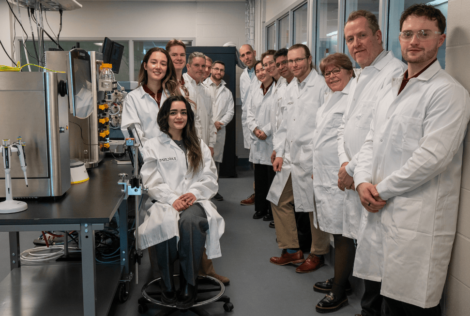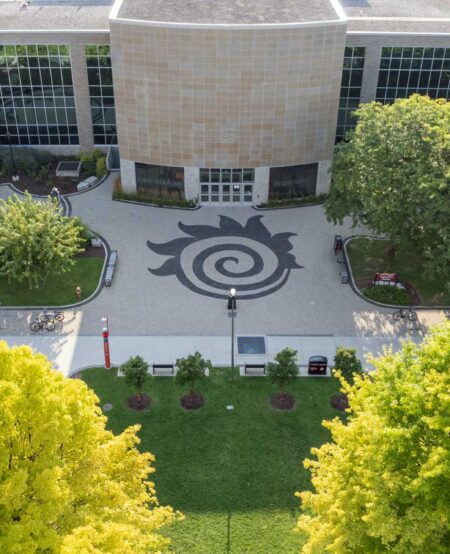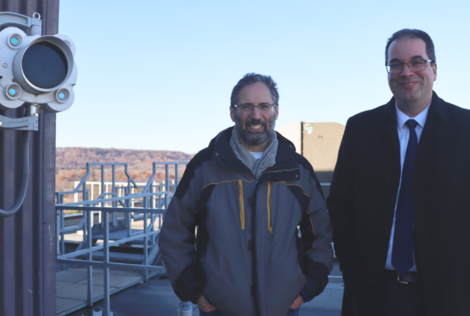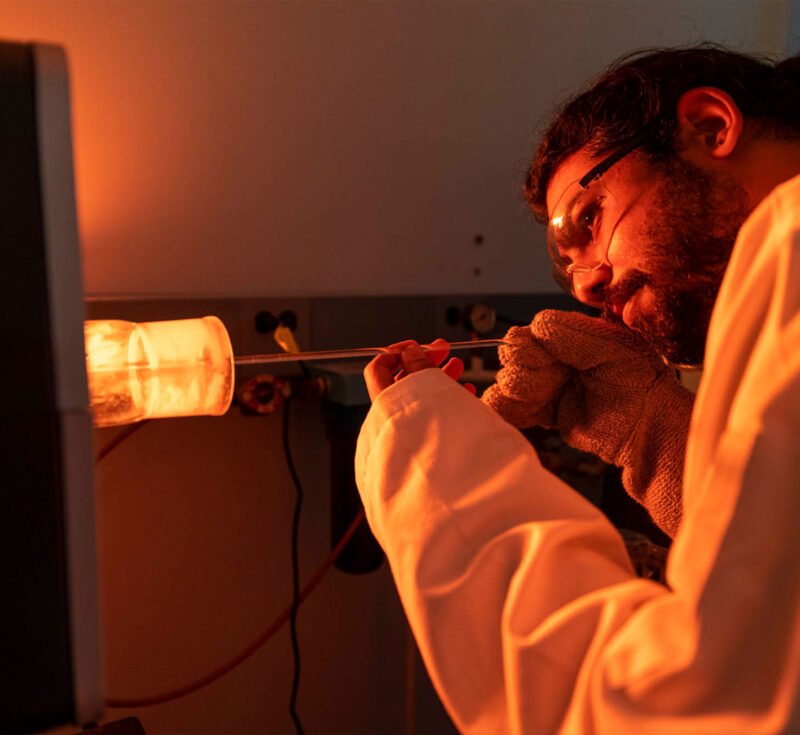
Brighter World
Collaboration with Sartorius powers state-of-the-art biomanufacturing lab on campus
Researcher Brandon Corbett and Dean Heather Sheardown from the Faculty of Engineering chat at the opening of the Sartorius BioProcess Automotion lab on Tuesday. The lab, along with a significant contribution of biomanufacturing equipment from Sartorius, will support the development of biotherapeutics and improved access to life-saving treatments for chronic diseases.




